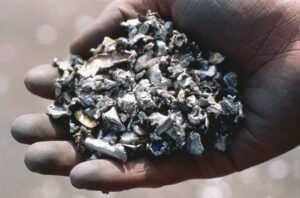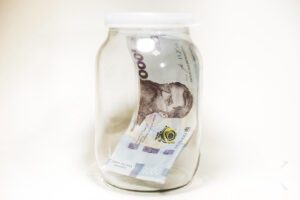National bank of Ukraine’s official rates as of 13/04/21

Source: National Bank of Ukraine

Accor Live Limitless will open three new hotels in Ukraine in 2022-2023: Ibis & Adagio Kyiv, Ibis Lviv and Novotel Lviv, Alexis Delaroff, the director general of Accor New East Europe, has told Interfax-Ukraine.
“For Accor Ukraine is an important market, and we strive to develop it further. Accor is already the largest international operator in Ukraine, and if we take into account the projects at the stage of signing or design, we are strengthening our positions,” he said.
According to him, the pandemic has made adjustments to the plans for the implementation of Ibis & Adagio Kyiv, the opening of this combo hotel is likely to occur next year.
“The project is now moving forward dynamically,” the expert said.
Two more projects are at a high stage of implementation in Lviv. According to him, Ibis Lviv will open in 2022, Novotel Lviv in 2023.
“Odesa, Dnipro, and other cities are also interesting to us. We are constantly looking for new projects and partners,” he said.
Accor S.A. Is the largest international hotel operator. The company was founded in 1967. It is headquartered in the Paris suburb Evry.
Accor Group unites more than 5,100 hotels in 110 countries of the world.

ICU Group will allocate $1 million for the development of Kyiv School of Economics (KSE) as part of the continuation of the program to support education in Ukraine, ICU said in a release.
“In 2016, we were one of the first in Ukrainian business who believed in the mission of KSE and the real desire of the management to realize it. The school is intended to become an intellectual basis for a strong and innovative economy of Ukraine, and it is important for us to direct funds to create such a basis. We have been doing this for five years, and we see a clear result of the efforts of the school – the number of students has grown 10 times, and the list of curricula covers almost all trends in the development of modern economic thought,” the founder of ICU and co-chairman of the board of directors of KSE, Makar Paseniuk, said.
President of Kyiv School of Economics Tymofiy Mylovanov noted the systematic cooperation between the KSE and ICU.
“ICU is one of the first strategic partners of Kyiv School of Economics. KSE and ICU are primarily partners who together generated the most daring ideas and implemented them together: setting a new quality bar for themselves and for others. Ukrainian Financial Forum 2018 and 2019, Ukraine Economy Week are our common and favorite projects aimed at improving the quality of economic and business discussions,” he said.
ICU is one of the founders and sponsors of the Center for Journalism at KSE, where Ukrainian media journalists receive necessary knowledge in the field of economics and finance. Now KSE is opening two modern English-language bachelor’s programs: “Economics and Big-Data” and “IT and Business Analysis.” This became possible, among other things, thanks to the partnership and financial support of ICU.
“I am sure that such a significant investment in the development of education in Ukraine will become a bright precedent for domestic businesses – the flagships of the Ukrainian economy,” he added.
ICU Group is an independent financial group, founded in 2006 by specialists from ING, providing brokerage services, asset and private equity management services, as well as venture capital investments. The group specializes in the markets of Central and Eastern Europe.

Nissan Motor Ukraine will start official sales of the updated Nissan Leaf in Ukraine this summer, according to a press release from the company.
“Nissan Motor Ukraine announces the official start of sales this summer of one of the most popular electric cars in the world. Nissan Leaf has become a pioneer in the segment of mass electric vehicles, and today it is one of the world’s bestsellers, with more than 500,000 cars sold,” the report says.
As reported, only used Nissan Leafs are currently imported to Ukraine, which for a long time held the undisputed leadership in the initial registrations of electric vehicles in Ukraine.
According to the Ukrautoprom association, in 2020 the registrations of Nissan Leaf amounted to 2,180, while Tesla Model 3 ranks second with 865 cars.
However, already in January 2021, the leadership in the Ukrainian market was seized by Chevrolet Bolt with 133 cars versus 107 Nissan Leaf cars, and by the end of the first quarter, the brands were practically equal in registrations.
The press release has not yet clarified the details, including prices and the date of the start of sales of the updated Nissan Leaf.
“This event, which many have been waiting for, became possible thanks to the mid-term plan of Nissan Next and its practical implementation in Ukraine. The official start of sales of Nissan Leaf in Ukraine is the first step in implementing the strategy of promoting Nissan electric vehicles in our country. Closer to the start of sales, we will announce the package, prices and exact dates of the start of sales,” Volodymyr Ivanov, the PR coordinator of Nissan Motor Ukraine, said on his Facebook page.
Nissan Motor Ukraine LLC, a subsidiary of Japan’s Nissan Motor Co, began operations in April 2005, and acts as an importer and distributor of Nissan and Infiniti in Ukraine.

Ukraine in January-March this year increased imports of aluminum ores and concentrate (bauxite) in quantity terms by 6% compared to the same period last year, to 1.303 million tonnes.
According to statistics released by the State Customs Service, during this period, bauxite imports in monetary terms increased by 11.8%, to $59.853 million.
At the same time, imports were carried out mainly from Guinea (56.17% of supplies in monetary terms), Brazil (25.86%) and Ghana (17.12%).
In January-March 2021, Ukraine re-exported 71 tonnes of bauxite for $15,000 to Poland (80%) and Germany (20%).
Mykolaiv Alumina Refinery LLC imports bauxite into Ukraine, the company is affiliated with United Company RUSAL (Russia). Alumina is produced from bauxite.

State-run PrivatBank topped the rating of the most profit-making Ukrainian banks in January-February 2021, having declared UAH 1.31 billion of net profit, while the largest loss was recorded by Pravex Bank – UAH 34.4 million.
According to the National Bank of Ukraine (NBU), the second position in the list of the most profitable banks was taken by Raiffeisen Bank Aval (UAH 758.705 million), the third by FUIB (UAH 676.133 million). Universal Bank with UAH 472.044 million) was fourth, and Alfa Bank with UAH 426.941 million was fifth.
According to the central bank, BTA Bank was second in terms of loss (UAH 7.68 million), the Ukrainian Bank for Reconstruction and Development (UBRD, UAH 6.671 million) third, AP Bank (UAH 6.389 million) fourth, and Unex Bank (UAH 4.682 million) fifth.
During this period 63 out of 73 banks operating in Ukraine saw profit.
According to the statistics of the National Bank, in terms of total assets, PrivatBank (UAH 561.062 billion) retained the first place in the rating in terms of total assets (UAH 561.062 billion), Oschadbank was second (UAH 279.702 billion), Ukreximbank (UAH 237.061 billion) was third, Ukrgasbank (UAH 149.524 billion) was fourth and Raiffeisen Bank Aval (UAH 118.33 billion) was fifth.
NATIONAL BANK OF UKRAINE, PRIVATBANK, RAIFFEISEN BANK AVAL, UKRAINIAN BANKS